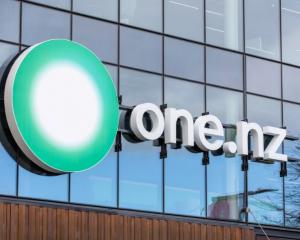
Rachel Butler, the new programme manager for student startup challenge Audacious, is fair fizzing about her new role and the potential for start-ups in the city.
And she is quick to point out that it is ''not just tech, not just being the next Facebook'', saying businesses take all forms.
A prime example of that is Ento, a company made up of science, law and commerce students from the University of Otago, which won Audacious last year.
With the help of local locust farmer Malcolm Diack, they came up with a project to turn whole locusts into a high-value protein powder.
They shifted their initial focus from crickets - they had a wardrobe full of crickets at one point - to locusts.
Yesterday, Ms Butler said the Ento crew were still pursuing their project.
In her role, Ms Butler supported both University of Otago and Otago Polytechnic students with their ideas and startup businesses.
Previous Audacious winners include Medikidz, which has created more than a million comic books designed to help children around the world understand medical conditions, and Language Perfect, which sells language learning software.
After winning Audacious in 2011 with his promotional headgear product, Clay Caird launched his sports marketing and promotion company in the United States.
Alex Dong entered Audacious that same year with a software programme he developed called Trunk.ly, which was then sold to the creators of YouTube.
Jason Leong also submitted a business plan for what was now known as PocketSmith, the tech company he co-founded.
Late last year, Ms Butler shifted north from Invercargill where she worked for Venture Southland, which supported community, events, tourism and businesses in the region.
Originally from Southland, her family moved to Brisbane 10 years ago when she was 17.
She had no regrets about moving back to Invercargill, saying it was probably the best thing she could have done for her career.
She got involved in the startup scene as a regional business partner for NZTE in Southland and discovered startup was ''a bit addictive''.
She came to a Startup Weekend in Dunedin, which put her ''wildly'' out of her comfort zone, but she enjoyed working with complete strangers ''on an absolutely random business idea''.
''I still think it's the best personal development I've ever done,'' she said.
Last year, Ms Butler completed the Te Papa culture-tech accelerator programme Mahuki, as co-founder of Mimicry Tech.
The four-month accelerator programme was based at Te Papa and Mimicry Tech was the first Invercargill team, and one of the first from the South Island, to be accepted into Mahuki.
She was commuting every week to Wellington to work at Te Papa on Tuesdays and Wednesdays which was an ''absolutely phenomenal'' experience, particularly the people she got to meet.
When the Audacious job came up, it was too good an opportunity not to take, she said.
This year, she wanted to focus on diversity, saying she wanted ''every type of student'', whether zoology, information technology or good technology, to become involved.
Ideas came from anywhere and were often through ''cross-pollination''.
She probably would not otherwise have crossed paths with her two co-founders of Mimicry Tech, Doug Thwaites and Louise Evans.
When Ms Butler studied at the University of Otago,she did not think she wanted to start a business.
But now, knowing more about the startup scene, she wanted it to ''become something you'd be silly not to do''.
Future employers were looking for innovation, creativity and teamwork and it broadened students' horizons.
And while there were prizes, it was not necessarily about winning. Entrepreneurship was a skill set, rather than a vocation - ''but we'll take both'', she said.
''Also failure is hard and the best time to fail is uni when nothing's on the line. Learn how to network before it's actually your brand on the line. It's just the safest place to build all of these skills,'' she said.
One of the attractions of the job was the supportive community for start-ups in Dunedin - ''it's Southland five years into the future'' - and the business community was accessible, supportive and ''so giving of their time''.
Some events were attracting 300 people and councillors and chief executives were turning up looking for ''the next big thing''. The exciting thing was that community belief, she said.
This year's Audacious programme was beginning on March 20 with the official launch and she was excited about the influx of ''fresh 20,000 brains'' due to arrive in the city. It was exciting to harness that energy.
Ms Butler was hoping to do a lot more online, as many polytechnic students did long-distance learning and she wanted to make Audacious as inclusive as possible.
She wanted Audacious to become student-driven, citing the potential for marketing students to provide the content for 2020's strategy.
She was keen to get involved with things like the Young Enterprise Scheme and BP Challenge for school pupils - ''supporting the entire pipeline of what entrepreneurship can look like in Dunedin''.
She was looking forward to working alongside Startup Dunedin's chief starter Donna Hall on ''how we can take start-ups ... to the next level''.











